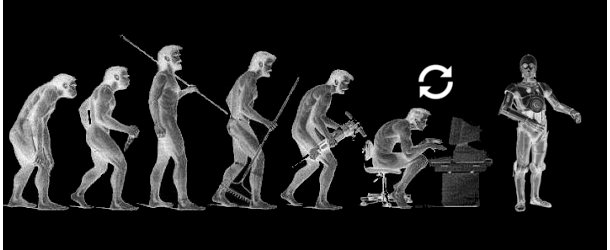Machines Are Making Hiring Decisions Based on Your Social Media Posts
 ai
ai
The next time you take to Twitter, decide whether you are happy with your job. Not because your social media post will get your fired (even though it could). But, because your next Tweet could prevent you from getting a job.
With all the Tweets and Facebook posts, it is highly unlikely that a human will be able to dig through every candidate’s’ social media profiles prior to making hiring decisions. Instead, it is very likely that an artificial intelligence app will do it. And, those artificial intelligence apps might find that your social media posts disqualify you for a job that you would be very good at doing.
Why are computers doing this work?
Artificial intelligence (AI) has been around for many years and companies are just realizing the value that AI has to human resources departments. Job-vetting machines can get a serious amount of work accomplished in a very short amount of time.
These AI apps have become very effective at digging through social media posts by looking for keywords, images, and contacts. So, if you are looking for a new job, your social media persona could affect your odds of even getting an interview.
Machines, like IBM’s Watson, are being used to sort through job applications. This way, humans are not overwhelmed and exhausted looking through them to find the most qualified candidates. The AI apps do this. Then the humans conduct interviews and make the final decisions.
The first time that Watson was exposed to the public, the machine had to play a game of Jeopardy. IBM has since looked at the skills that Watson had and has made them specific for different industries.
It turns out that digging through job applications was something the computer could do well. The computer relies on a processor that builds profiles that are used to compare candidates. It uses the processor to evaluate personality traits that are gathered by looking at social media, text messages, emails, blogs, and forum posts.
The human ways of finding job candidates
Prior to using something like Watson to sort through candidate resumes and read their cover letters, there were other, more human ways of finding candidates. Companies relied on recruiters and their current employees to find people who had the skills, knowledge, and personalities that would fit.

Using a bot to find candidates removes the chances of finding a job based on who you know. Yes, there will still be companies that hire based on the recommendations of their current employees and their favorite recruiters, but the big companies will move away from this.
Having a bot dig through resumes lets companies spend less on their human resources department. Yes, they will still need people to conduct interviews and make final decisions, but this grunt work of reading resumes and sorting them is much more cost effective with a bot. Watson can sort through data in a blink of an eye. A human cannot.
How does AI change the job seeking game?
What does this all mean for job seekers? Artificial intelligence changes the resume game. Gone are the days when an eye-catching font or a creative cover letter helps you get your foot in the door.
Now, job seekers need to be sure that they have keywords appropriately stuffed into their paperwork. It’s like learning to use SEO (search engine optimization) tools to get the attention of the computer.
Pay close attention to your social media profile
Job seekers also need to be hyper aware of what they put online. Since most people today have some sort of online, social media presence, not having it could harm your chances of getting through a sort. Have a social media presence, just be sure that you are not doing things that would put your resume in the immediate NO pile.
If your actions could damage the reputation of the company, then you will not be hired. It’s that simple. And, the same should go for the things you post after you have the job.
The idea of a computer digging through resumes can be stressful for job seekers. As certain keywords and images will immediately trigger the AI bots to move a resume to the no pile, people might become less likely to look for new jobs. When something is posted to Facebook, Twitter, or a blog, it can be difficult to remove.
Will people be able to change their social media profiles as they age or are they stuck with the stupid things they posted when they were in high school or college? It does not seem fair that a job seeker could be immediately removed from candidacy based on things that they did years before applying for a job.
How to remain relevant in the age of machines?
The key to survival in the age of machines is to remain relevant. The machines cannot do work like this without programmers and people who can maintain the machines. When you are building a resume that you know a computer will scan, then your first consideration is to the format of the resume.
A computer will not look for a unique resume format, but will look at the quality of the words, the grammar, spelling, and keywords. You remain relevant by following the format that the computer expects, but you put your creativity and personality into the details of the words you choose. Do not try to reinvent the resume because the computer doesn’t care about that.
Another way to remain relevant is to be sure your social media posts fit with the career you want to have. So, if you want a career in real estate, you should have some posts about homeownership, financing homes, and decorating homes.
Of course, you can write about your favorite sports teams or take pictures of your meals, but include some posts that show you are passionate about a particular career. The bot will see these and will recognize that you could be a candidate worthy of an interview.
Once you learn how to please the AI bot that is scanning resumes, you will have better chances of getting to the human waiting for the results of the scan.

Professional Recruiter Associates